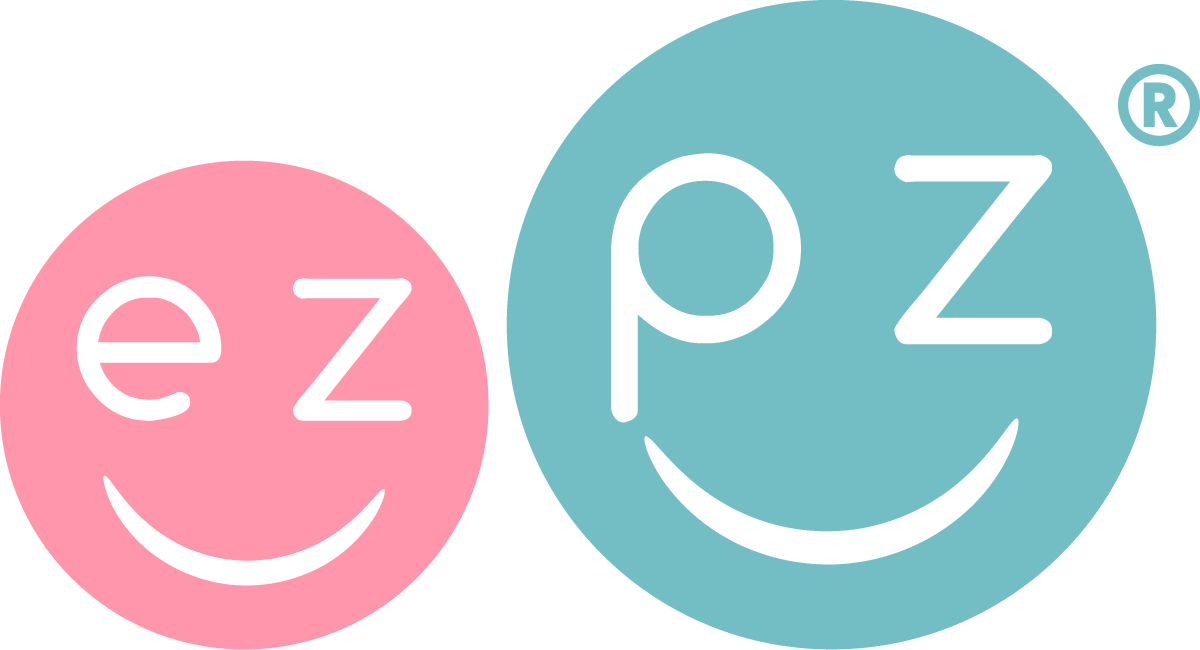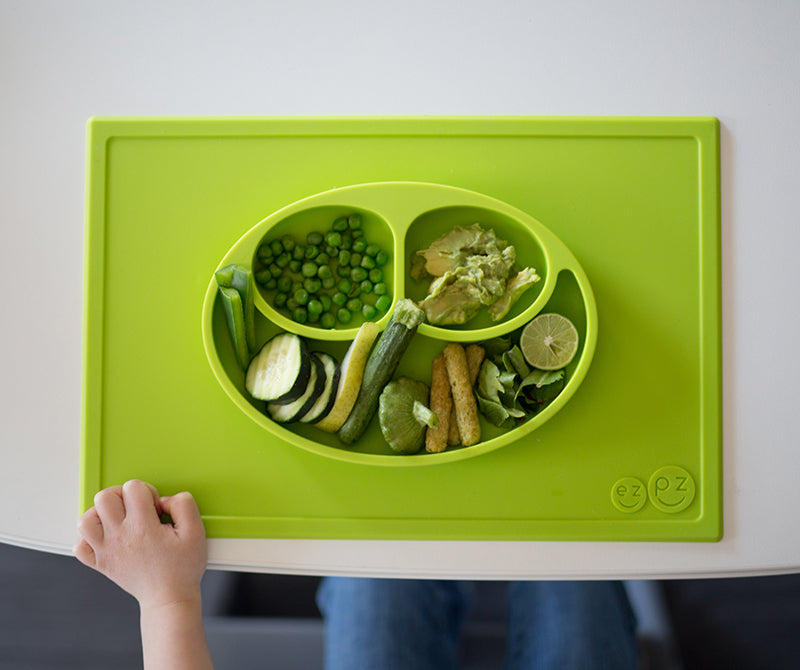You can wear the color green for more than St. Patty’s day this month; green is the color for Cerebral Palsy Awareness Month too! Help team ezpz spread education and awareness by learning about cerebral palsy (CP) and the feeding challenges these children may have.
Physical Challenges: Cerebral palsy is a condition that affects the movements of the body, particularly the limbs. Children with cerebral palsy have arms and legs that appear to be stiff or floppy with spastic involuntary movements. A child with CP struggles with muscle coordination for all aspects of daily living, which can leave them fatigued and frustrated. But, with patience, determination and therapy, children with cerebral palsy can overcome their physical limitations and be independent, especially with eating!
- Kiddos with CP have inconstant muscle coordination, which makes eating independently difficult. In the past, I was using “adapted” dish ware (dishes designed specifically for people with special needs) in feeding therapy, but these products didn’t suction after one round in the dishwasher. Thank goodness ezpz came up with their patented self-seal technology and the Happy Bowl and Happy Mat! The suction feature holds the dish in place, which allows children with CP to hold on to the edge of the mat for stability and eat with their dominant hand.
Intellectual Challenges: Unfortunately, there is a myth in our society that all children with CP have severe intellectual challenges, which is not true. In my clinical experience, most of the kiddos I’ve worked with have been highly intelligent, motivated and have the best sense of humor! Whether or not a child with CP has an intellectual delay, we need to interact with these children in the same way we would any child (with respectful and kind language!).
- The words and tone we use at mealtime can encourage or discourage children to try a bite of a new food. We talk about tone + language in our book Making Mealtime ezpz and provide examples on how to use encouraging expressions to gently nudge kids during mealtime.
Feeding Challenges: Infants and children with cerebral palsy are at risk for feeding and swallowing delays and picky eating issues because of reflux, poor positioning and oral motor issues. Having a Speech Language Pathologist or Occupational Therapist who specializes in feeding therapy can help the family learn feeding strategies and tools to make mealtime less frustrating.
- Infants: Infants with cerebral palsy have a predisposition to aspiration pneumonia (food or liquids going into the lungs) which can be life-threatening if not diagnosed and treated quickly. Feeding and swallowing difficulties can occur due to challenges with respiration and coordinating their oral musculature.
- Children: Toddlers and school age children with CP may continue to have difficulties managing their breathing, sucking and swallowing coordination, resulting in inconsistent gagging and coughing while eating. By maintaining their posture, managing their gastroesophageal reflux and purchasing feeding products that promote independence mealtime can become less stressful for the entire family.
Children with cerebral palsy can overcome their feeding challenges and be independent eaters at mealtime. During this month, please join team ezpz as we celebrate children with CP by wearing and EATING green! Show us your green foods with the hashtags #ezpzfun #CerebralPalsy and #myezpzmat.



